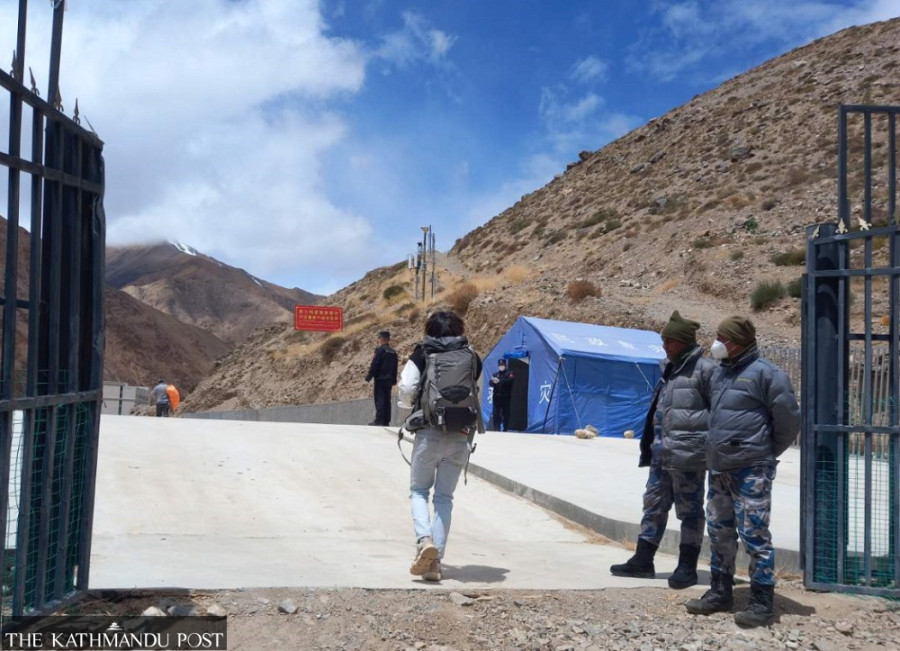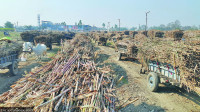Money
Locals in remote Mugu urge government to reopen Nakchenangla pass
For the locals of Mugum Karmarong Rural Municipality, Tibet is much closer. They have to walk for five days to reach Gamgadhi—the district headquarters—to buy daily essentials.
Raj Bahadur Shahi
Locals in Nakchenangla pass in Mugu, bordering Tibet, have urged the government to make efforts to open the border which could make their lives easier.
The Chinese government, on Monday, reopened its border in Hilsa Pass, after being closed for four years due to the Covid-19 pandemic.
As the pass reopened in Humla, trade movement between Nepal and China has resumed.
On Monday, 18 Nepali travelled to Taklakot–an ancient trade centre in Tibet.
But, Mugu has been disconnected from Tibet and as a result, locals have been facing hardship.
The locals of Mugum Karmarong Rural Municipality have been restricted from importing goods and foods, including livestock from Tibet due to the closure of the pass, according to the locals.
Most of the locals are entirely dependent on food items brought from Tibet.
For the locals of Mugum Karmarong Rural Municipality Tibet is much closer. They have to walk for five days to reach Gamgadhi—the district headquarters.
The major staple–naked barley, locally known as Uwa, is grown only once a year in the 17 villages of the rural municipality.
“The local production barely sustains the village for three months,” said Sonam Tamang, a local of Mugu village. “Due to the closure of the border, we have to walk for five days to Gamgadhi to buy a sack of rice.”
The locals are also deprived of selling herbs at a reasonable rate.
“Previously, 18 types of herbs such as cordyceps, kutki (Picrorhiza kurroa), and wild garlic (Allium wallichii) collected from the forests of Karmarong rural municipality were exported to Tibet,” said Tenjing Guru Tamang, another local.
But now, the villagers have to bring them to Gamgadhi on mules and then take it to India via Nepalgunj.
The lack of road connectivity has added to the woes of the locals.
They have to rely on mules and horses to transport the goods to the rural villages in the area in the absence of motorable road connectivity which has been making the livelihood even costlier.
“The Chinese goods were cheaper and easily accessible as well,” said Yangjum Tamang, a local of Chitai village. “Now, we are paying twice the price of goods for transportation from the district headquarters to the village.”
Each local can only buy a 5kg packet of salt each day from the Gamgadhi depot of the Salt Trading Corporation– the sole distributor of salt in Nepal.
Although the price of the salt is Rs9 per kg in the district headquarters, the price to transport it on the back of mules to the village costs at least Rs70 per kg.
The price of a 25kg sack of rice in Gamgadhi costs around Rs2,000, however, the price spikes to around Rs4,500 when it reaches the villages such as Mugu, Chitai and Dolphu.
Local bodies also report the increment in poverty due to the restriction on cross-border trade with Tibet for a prolonged duration.
The traders who sold local products such as beans, apples, naked barley, medicinal herbs and so on have been compelled to hoard their goods at home.
“The locals are optimistic about the opening of the Nakchenangla pass after the opening of the Hilsa pass in Humla,” said Tshering Kyapne Lama, chief of Mugum Karmarong Rural Municipality.
A written request has been made to the Ministry of Foreign Affairs to reopen the northern pass in Mugu, said Aain Bahadur Shahi, a member of the House of Representatives.
Along with the closure of the Nakchenangla pass, the customs office in Mugu Villiage too, has gone jobless. The office was relocated to Gamgadhi for six months after the start of the snowfall in the region due to the low temperature.
Along with the customs office, the police station was also shifted to the district headquarters, therefore, the villages in the border area remain devoid of security personnel from mid-November to mid-May.
12 years ago, the federal government kicked off construction of the 85 kilometres long Gamgadhi-Nakchenangla road to connect the Mugu district with Tibet.
However, only an 18-kilometre track from Gamgadhi to Chhail Bazar has been constructed so far. That too, was damaged by the heavy rain in September last year, therefore, the villagers have to travel to the headquarter on foot.
The Road Division Office has been allocating a budget of Rs80 million to Rs100 million each year, however, the delay in the release of funds and scarcity of adequate manpower has been causing the budget to freeze every year.
This fiscal year too, a budget worth Rs80 million has been allocated for the project, but, the work has not commenced yet.




 9.29°C Kathmandu
9.29°C Kathmandu.jpg)













